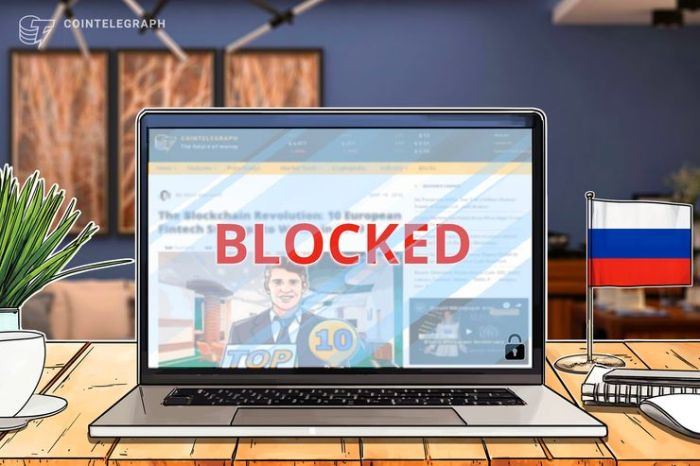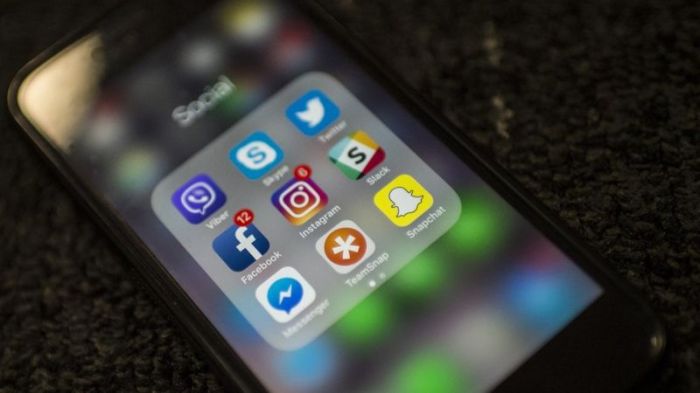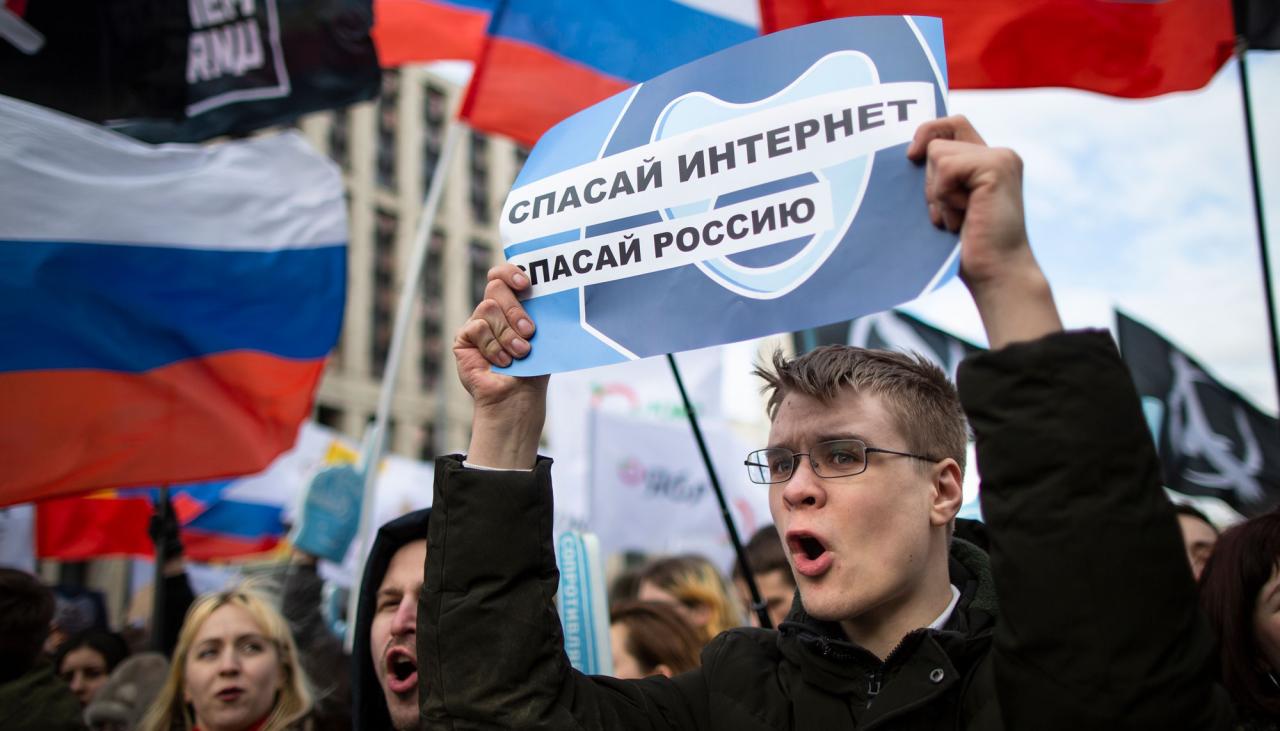Slack warns russians users suspension – Slack warns Russian users: suspension looms. The messaging platform’s decision to potentially cut off Russian users sent shockwaves through the tech world and beyond. Was this a bold stand against the ongoing conflict, a calculated business move, or something else entirely? Let’s dive into the complexities of Slack’s announcement and explore the ripple effects across geopolitics, international law, and user experience.
This isn’t just about a messaging app; it’s a case study in how tech giants navigate international crises. We’ll unpack Slack’s official statement, analyzing the reasoning behind the suspension and examining the potential consequences for both Russian users and Slack itself. From the immediate impact on businesses and individuals to the long-term implications for global communication, this story is far from over.
Slack’s Announcement

Source: cointelegraph.com
Slack’s decision to suspend Russian users wasn’t a spur-of-the-moment thing; it was a calculated move following escalating geopolitical tensions. The announcement itself, while not overly detailed, signaled a significant shift in Slack’s approach to operating within a complex international landscape.
Slack’s official statement, while lacking specific details, broadly cited compliance with international sanctions and a commitment to upholding safety and security as the primary reasons for suspending Russian users. The company aimed to prevent the platform from being used for activities that violated these principles. The lack of granular specifics is likely a deliberate choice, reflecting the sensitive nature of the situation and potential legal ramifications.
Timeline of Events Leading to the Suspension
The timeline leading to Slack’s suspension of Russian users is intertwined with the broader context of the war in Ukraine and the subsequent international sanctions imposed on Russia. While Slack didn’t release a precise day-by-day account, the decision likely followed a period of internal assessment, legal consultation, and consideration of the evolving geopolitical situation. This process probably involved weighing the potential risks of continued operation in Russia against the ethical implications of allowing the platform to be potentially misused. The announcement itself likely followed a period of internal preparation and communication to affected users.
Comparison of Slack’s Response with Other Tech Companies
Several other tech companies have taken similar actions in response to the conflict in Ukraine and international sanctions. The responses, however, have varied in scope and implementation. This table offers a comparison of Slack’s response with some notable examples:
| Company | Action Taken | Rationale | Timeline (Approximate) |
|---|---|---|---|
| Slack | Suspension of Russian users | Compliance with sanctions, safety and security concerns | Following imposition of major sanctions |
| Meta (Facebook, Instagram) | Restricted access to Russian state media, allowed users to mark posts as “Russian invasion” | Combating disinformation, supporting Ukraine | Shortly after the invasion began |
| Limited access to some services in Russia, stopped ad sales | Compliance with sanctions, safety and security concerns | Following imposition of major sanctions | |
| Apple | Halted product sales in Russia, disabled Apple Pay | Compliance with sanctions, safety and security concerns | Following imposition of major sanctions |
Impact on Russian Users

Source: co.uk
Slack’s suspension in Russia has created a ripple effect, immediately impacting communication for countless individuals and businesses. The consequences are multifaceted, ranging from disrupted workflows to potential long-term economic repercussions. Understanding these impacts is crucial to grasping the full scope of the situation.
The immediate consequence for Russian Slack users is, quite simply, a severed connection. Teams relying on Slack for project management, client communication, and internal collaboration found themselves suddenly cut off. This disruption caused immediate workflow bottlenecks, forcing a hasty scramble for alternative solutions. Imagine a software development team in the midst of a critical release, or a marketing agency coordinating a major campaign – the sudden loss of their primary communication tool created significant chaos and potential delays.
Long-Term Effects on Russian Businesses and Individuals
The long-term effects are potentially more significant. For businesses, the reliance on a single platform like Slack highlights a vulnerability in their operational infrastructure. The suspension underscores the need for diversification in communication strategies and a more robust approach to digital resilience. This might lead to increased costs associated with adopting and integrating new platforms, as well as the time and resources required for training employees on these new tools. For individuals, the impact could range from hindered professional networking to decreased access to information and support groups that relied on Slack for communication. The long-term effects could lead to increased isolation and reduced opportunities for collaboration. Consider, for example, freelancers who relied on Slack to communicate with clients, or remote workers who used it to connect with colleagues – the loss of this platform could significantly impact their professional lives.
Alternative Communication Platforms
Faced with the Slack ban, Russian users are turning to various alternatives. These include platforms like Telegram, which already enjoys considerable popularity in Russia, and Microsoft Teams, a widely used business communication platform. Other options include Russian-developed platforms like VK Messenger, aiming to capture the market share left by Slack’s departure. The choice of platform often depends on the user’s specific needs and preferences, balancing factors such as familiarity, features, and security concerns.
Challenges in Transitioning to Alternative Platforms
The transition to alternative platforms is not without its challenges. Data migration from Slack to other platforms can be complex and time-consuming, requiring careful planning and execution. The learning curve associated with new platforms can also be steep, particularly for users unfamiliar with the chosen alternative. This can lead to decreased productivity and frustration during the initial adoption phase. Furthermore, integrating new platforms into existing workflows requires adjustments and potentially necessitates retraining employees. The seamless integration of features and functionalities from Slack into the new platform is another significant hurdle, and the lack of direct equivalents for specific Slack features can lead to workflow disruptions. Consider a company accustomed to using Slack’s intricate channel organization; replicating this functionality in a new platform might require significant effort and potentially compromise efficiency.
Geopolitical Context and International Law
Slack’s decision to suspend Russian users throws a spotlight on the increasingly complex intersection of technology, geopolitics, and international law. The move, while seemingly straightforward in its execution, raises a host of thorny legal and ethical questions that go far beyond simple terms of service. It’s a case study in the challenges faced by global companies navigating a world of shifting political landscapes and conflicting legal frameworks.
The geopolitical context is undeniably shaped by the ongoing conflict in Ukraine. Western nations have imposed numerous sanctions on Russia, aiming to cripple its economy and pressure its government. Slack’s action can be viewed as a contribution to this broader effort, albeit one that operates in the digital realm rather than the traditional economic sphere. This action falls within a broader trend of tech companies responding to geopolitical events, often facing difficult choices between adhering to international law, complying with sanctions, and maintaining a consistent global service. The pressure to conform to the geopolitical narrative of the dominant powers, while balancing user rights and international law, is a significant challenge.
Slack’s Actions and International Law
Slack’s actions must be evaluated against a backdrop of international laws and regulations concerning data and communications. While there’s no single, universally applicable international law governing the suspension of users based on nationality, several treaties and principles are relevant. These include principles of non-discrimination, freedom of expression, and the right to privacy, all enshrined in international human rights law. The question arises whether Slack’s actions disproportionately affect Russian users’ rights and whether those actions are justified under the current geopolitical circumstances. The legal interpretation of “justification” in this context is a complex one, particularly given the absence of explicit international legal precedent for such large-scale suspensions based solely on nationality. Companies like Slack are navigating uncharted legal territory, creating a need for further clarification of international law in this digital era.
Ethical Considerations of Suspending Users Based on Nationality
Suspending users based solely on their nationality raises serious ethical concerns. It implies collective guilt, punishing individuals for the actions of their government. This approach overlooks the fact that many Russian users may be critical of their government or even actively opposing it. By sweeping a large population into a single category, Slack risks silencing dissenting voices and exacerbating the very issues it aims to address. The ethical implications also extend to the potential for discriminatory practices based on nationality and the impact on individual users’ ability to access information and communicate freely. This raises questions about fairness, equality, and the potential for bias in the application of company policies.
Potential Legal Challenges Faced by Slack
Slack’s decision opens it up to a range of potential legal challenges. A bulleted list of potential legal actions includes:
- Lawsuits from affected Russian users alleging violations of their rights to freedom of expression and access to information.
- Challenges from Russian authorities claiming violations of Russian data protection laws or other national regulations.
- Investigations by international human rights organizations examining the proportionality and legality of Slack’s actions.
- Legal action from international bodies or NGOs focusing on the ethical implications of mass user suspensions based on nationality.
- Private lawsuits from users who lost data or access to essential communication services due to the suspension.
The legal landscape is complex and constantly evolving, making it challenging for companies like Slack to navigate these issues without facing potential legal repercussions. The long-term implications of these actions are still unfolding, and the legal battles that may ensue could set important precedents for how technology companies respond to geopolitical events in the future.
Slack’s Business Strategy and Reputation
Slack’s decision to suspend Russian users throws a complex wrench into its carefully calibrated business strategy. The move, while arguably morally sound, carries significant potential ramifications for its bottom line, global brand perception, and long-term growth aspirations. Balancing ethical considerations with the realities of a global marketplace is a tightrope walk, and Slack’s performance in this instance will be closely scrutinized.
The impact on Slack’s business strategy hinges on several factors, primarily the size and nature of its Russian user base. While the direct financial loss might be relatively small compared to Slack’s overall revenue, the symbolic weight of the decision is substantial. It sets a precedent for how Slack will navigate future geopolitical crises, potentially influencing its expansion into other volatile regions. Furthermore, the decision could impact investor confidence, particularly those prioritizing short-term profits over long-term ethical considerations.
Impact on Slack’s Business Strategy
Slack’s suspension of Russian users presents a strategic trade-off. While it aligns with its commitment to adhering to international sanctions and maintaining a safe and secure platform, it risks alienating a segment of its user base and potentially impacting future growth in the region. The company will need to carefully assess the long-term implications of this decision, balancing its ethical stance with its financial goals. This situation mirrors the challenges faced by other tech giants like Google and Facebook, who have had to grapple with similar dilemmas in various global contexts. For example, Facebook’s struggles in navigating content moderation in different countries highlight the complexity of balancing global standards with local sensitivities. Slack’s response will serve as a case study for future corporate decisions in similar situations.
Impact on Slack’s Global Reputation
The suspension of Russian users could lead to diverse reactions globally. Some users may applaud Slack’s principled stand, viewing it as a responsible corporate response to the ongoing conflict. Others, particularly those in regions with less stringent views on sanctions, might perceive the move as censorship or an overreach of corporate power. The resulting reputational impact will depend largely on how effectively Slack communicates its rationale and manages the ensuing public discourse. A strong, transparent communication strategy will be crucial to mitigating potential negative backlash. We can look to similar instances, like the controversy surrounding Twitter’s handling of misinformation, to see how a lack of clear communication can severely damage a company’s reputation.
Financial Implications of Losing Russian Users
The direct financial impact of losing Russian users will likely be relatively modest compared to Slack’s overall revenue. However, the potential for broader consequences is more significant. The move could damage Slack’s brand perception in regions where anti-Western sentiment is strong, leading to decreased adoption rates. This could be especially true in countries with close ties to Russia. Furthermore, the decision might deter potential investors concerned about future regulatory risks or reputational damage in volatile geopolitical environments. Precisely quantifying the financial impact is challenging without knowing the specific contribution of Russian users to Slack’s revenue stream. However, the potential for indirect financial losses through reputational damage and reduced market share should not be underestimated. A similar situation could be seen in the impact on businesses that pulled out of the Russian market after the invasion of Ukraine, where the immediate financial loss is difficult to pinpoint, but long-term implications on brand image and future prospects are substantial.
Hypothetical Press Release Addressing User and Stakeholder Concerns
FOR IMMEDIATE RELEASE
Slack Addresses Suspension of Russian Users
[City, State] – [Date] – Slack today addressed concerns regarding the recent suspension of its services for users in Russia. This decision was made in accordance with international sanctions imposed in response to the ongoing conflict in Ukraine. We understand that this action impacts our valued Russian users, and we deeply regret any inconvenience this may cause. Our priority is to maintain a safe and secure platform for all users, and this action is a necessary step to ensure compliance with applicable laws and regulations. We remain committed to upholding the principles of freedom of expression while ensuring the integrity and security of our platform. We are closely monitoring the situation and will continue to evaluate our policies as circumstances evolve. We are confident that this decision, while difficult, is in line with our commitment to responsible corporate citizenship and reflects our dedication to upholding international law. We appreciate the understanding of our users and stakeholders.
User Reactions and Public Opinion: Slack Warns Russians Users Suspension

Source: technologyreview.com
Slack’s decision to suspend Russian users sparked a firestorm of reactions, ranging from staunch support to vocal condemnation. The diverse responses highlight the complex interplay of geopolitical tensions, business ethics, and individual experiences with the platform. Understanding these reactions is crucial to analyzing the long-term impact of Slack’s actions.
The varied responses can be broadly categorized by user type and their relationship to the ongoing conflict in Ukraine. Individual users, businesses operating in Russia, and international businesses with Russian clients all experienced the suspension differently, leading to a wide spectrum of opinions.
Individual User Reactions
Individual user reactions were largely determined by their location and political leanings. Users outside of Russia, particularly those supporting Ukraine, largely expressed approval, viewing the suspension as a necessary step to counter Russian disinformation and support democratic values. Conversely, Russian users expressed frustration and anger, highlighting the loss of access to a crucial communication tool for work and personal connections. Some expressed concerns about censorship and the implications for freedom of speech, while others focused on the practical difficulties of switching to alternative platforms. A small segment, though, saw it as a justified response to the ongoing conflict.
Business User Reactions, Slack warns russians users suspension
For businesses, the impact was more multifaceted. International companies with operations in Russia faced immediate logistical challenges, needing to find alternative communication solutions for their Russian teams. Some expressed support for Slack’s decision, aligning their actions with broader sanctions against Russia. Others criticized the move, citing the disruption to their operations and the potential loss of business. Russian businesses, naturally, experienced the most significant disruption, facing difficulties in internal communication and collaboration. This forced many to seek alternative platforms, often leading to a period of adjustment and reduced efficiency.
Public Opinion and Sentiment Analysis
Public opinion on Slack’s decision was highly polarized, mirroring the global divide on the conflict in Ukraine. Online forums and social media platforms saw a flood of comments reflecting these differing perspectives. Pro-Ukraine voices celebrated Slack’s action as a strong stance against Russian aggression, highlighting the company’s commitment to democratic values. Conversely, pro-Russia voices condemned the decision as censorship and an unfair targeting of Russian citizens. Neutral observers often highlighted the complex ethical and legal considerations involved, acknowledging both the potential benefits and drawbacks of such a move.
Hypothetical Infographic: Sentiment Distribution
A hypothetical infographic depicting the distribution of public sentiment would show a clear division. A pie chart, for example, could illustrate the percentage of positive, negative, and neutral sentiment towards Slack’s decision. The positive segment would likely be larger, reflecting the strong support from users in countries supporting Ukraine. The negative segment would be significantly smaller, representing the primarily Russian users negatively impacted. A smaller neutral segment would represent those who acknowledge the complexity of the situation without taking a definitive stance. The chart would need to clearly label each segment with its corresponding percentage and a brief description. The infographic would also likely include a map highlighting the geographic distribution of sentiment, with darker shades representing areas with stronger positive or negative reactions. This would visually represent the global polarization surrounding the issue.
Final Conclusion
Slack’s decision to potentially suspend Russian users is a multifaceted issue with far-reaching consequences. While the move might be seen as a strong stance against the ongoing conflict, it also raises crucial questions about freedom of communication, international law, and the responsibilities of tech companies in a globalized world. The fallout – from the immediate disruption for Russian users to the long-term impact on Slack’s reputation and business strategy – will continue to unfold, making this a story worth watching closely. The future of communication in a fractured world hangs in the balance.


